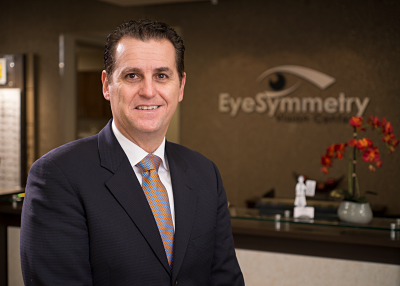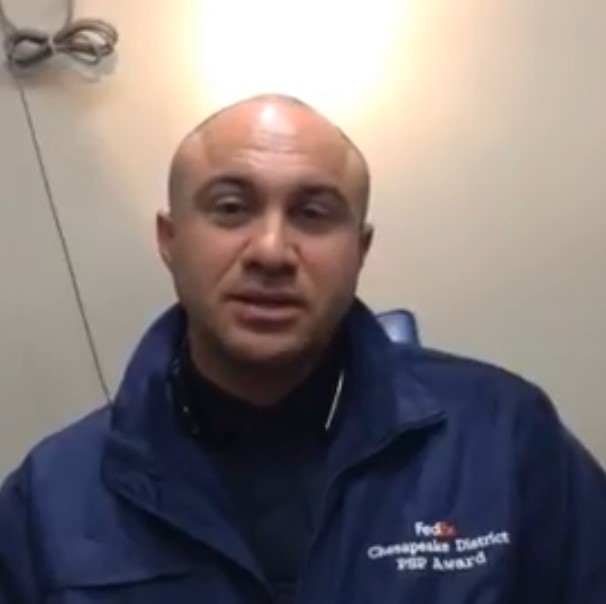Keratoconus Specialist in Owings Mills, Maryland
Keratoconus is a rare, progressive disease that affects the cornea, which is the clear, transparent layer at the front of the eye.
Meet Our Keratoconus Specialist in Owings Mills, Maryland
Moshe Schwartz, O.D., F.A.A.O. – Contact Lens Specialist in Baltimore
Dr. Schwartz earned his Doctor of Optometry degree from the Nova Southeastern University in Florida, and has been in private practice since 1997.
 He is a Diplomate in Cornea, Contact Lenses, and Refractive Technology of the American Academy of Optometry. Becoming a Diplomate in the Academy demonstrates that one is an expert in their discipline, this 5 year review process is the highest clinical designation in the field of optometry and is achieved only after a grueling series of written, practical, and live patient examination testing by his peers.
He is a Diplomate in Cornea, Contact Lenses, and Refractive Technology of the American Academy of Optometry. Becoming a Diplomate in the Academy demonstrates that one is an expert in their discipline, this 5 year review process is the highest clinical designation in the field of optometry and is achieved only after a grueling series of written, practical, and live patient examination testing by his peers.
There are around 120 diplomates worldwide and he is one of three optometrists in Maryland who has achieved this milestone. He has lectured nationally and internationally on contact lenses and refractive technologies. He is an active member of the College of Vision Development (C.O.V.D.)
Dr. Schwartz spent a year at John’s Hopkins University School of Medicine’s Wilmer Eye Institute as a Pediatric Optometrist and actively participated in the Baltimore Pediatric Eye Disease Study.

Our Doctor Can Diagnosis and Treat Keratoconus
Your cornea is the transparent, outer lens of your eye, and it typically has a smooth dome shape. Keratoconus describes a condition in which the corneal structure isn’t strong enough to maintain a healthy ball shape.
Meet with our Keratoconus Specialist in Owings Mills, Maryland to define your eye's condition and ways for treatment.
As a result, the cornea bulges outward into more of a cone. Our professional optometric team at our eye care clinic is knowledgeable about how to diagnose and treat keratoconus.
Keratoconus is rare, with an estimated one person out of every 2,000 having the condition. It generally appears in the teenage years and can progress slowly or rapidly.
Keratoconus also runs in families, so if you or your children are at risk, it’s advised to contact us for a thorough eye exam.
Causes of Keratoconus
Your cornea is held in place by very small collagen fibers. When they are weakened and too fragile, they aren’t able to preserve the round shape of your cornea.
A reduction in the protective antioxidants of your cornea, which act to destroy damaging by-products made naturally by corneal cells, is what causes keratoconus.
In addition to genetics, some types of eye injuries may increase your chance of being diagnosed with keratoconus.
Specific ocular diseases, such as retinitis pigmentosa, vernal keratoconjunctivitis and retinopathy of prematurity, as well as some systemic conditions (Down syndrome, Ehlers-Danlos syndrome, Leber's congenital amaurosis and osteogenesis imperfecta) are also associated with this corneal abnormality.
Symptoms of Keratoconus
When the shape of your cornea begins to bulge, it alters your eyesight in two different ways. As the cone shape forms, your normally smooth corneal surface becomes wavy, called irregular astigmatism. Additionally, as your cornea expands, vision becomes increasingly nearsighted. Focusing becomes impossible without eyeglasses or contact lenses. Usually, the problems begin in one eye and develop later in the other eye too.
Typically, the patient’s eyeglass prescription will change often as the vision becomes worse and contact lenses will be difficult to wear due to discomfort and improper fit.
When keratoconus become more severe (which usually takes a long time however on occasion can happen rather quickly), the cornea can begin to swell and form scar tissue. This scar tissue can result in even further visual distortion and blurred vision.
Altogether, these changes can create the following symptoms:
- Blurred vision
- Streaking of lights
- Halos around bright lights at night; glare
- Sudden change of vision in only one eye
- Objects appear distorted, both near and distant
- Double vision from just one eye
- Triple ghost images


How We Diagnose Keratoconus
Our eye doctors will inspect carefully for the signs of keratoconus during your comprehensive eye exam. It’s critical to inform us of any symptoms that you’ve been experiencing.
To diagnose the condition, we’ll measure the shape of your cornea. Computerized Corneal Topography is used for this procedure, which takes a picture of your cornea and analyzes it instantly.
Treatment for Keratoconus
The first line of treatment is usually new prescription eyeglasses. If this solution doesn’t help you achieve good vision, then contact lenses will be tried. Rigid, gas permeable lenses are typically prescribed.
As the disease progresses, however, glasses and soft contact lenses may no longer correct vision and soft lenses may become uncomfortable. This is when other forms of vision correction will be recommended.
Our Keratoconus Specialist in Owings Mills, Maryland has years of experience identifying the various levels of keratoconus and other corneal conditions.
Our Keratoconus Patient Testimonials
Gas Permeable and Scleral Contact Lenses
At the more advanced stage of keratoconus rigid gas permeable (RGP) contact lenses, scleral or semi-scleral lenses may be used for increased comfort and visual acuity. Since they are more rigid, RGP and scleral lenses are able to create a smooth, round shape around the cornea, creating a smoother surface for better vision.
Scleral or semi-scleral lenses have a larger diameter which covers the entire cornea and reaches over into the white part of the eye, which is known as the sclera.
Many patients find these more comfortable than regular RGPs and find that they move around less when the eyes move. The main disadvantage of these rigid lenses is that for some, they are somewhat less comfortable than soft lenses and they must be continually refitted as the shape of the eye changes.
Whether it is glasses or contact lenses being used to correct vision, patients will likely have to undergo many tests and prescription changes as their vision needs to change.
Intacs
Intacs are small, surgically implanted plastic inserts which are placed on the cornea to flatten it back to shape. Usually they are able to restore clear vision, with the continued use of glasses. Intacs are often recommended when contact lenses and eyeglasses are no longer able to correct vision adequately. Intacs take about 10 minutes to insert and can delay the need for corneal transplant.
PTK for severe keratoconus
Severe keratoconus may lead to extreme scarring, due to overstretched collagen fibers. If the back of your corneas tears as a result, swelling may occur. It can take months for the swelling to go down, and a large scar is generally created. PTK, a specialized procedure, can smooth out this scar, thereby enhancing contact lens comfort.
Cornea collagen crosslinking
Cornea collagen crosslinking is another therapy that has shown to be effective in slowing the progression of keratoconus. An alternate remedy is called intacs, which are semicircular implants inserted under the surface of the cornea to flatten the bulging cone shape and give better vision.
Cornea Transplant
As a last resort, a cornea transplant may be performed. During this procedure, the center of your cornea will be removed and replaced with a donor cornea. The new cornea is stitched into place, and you’ll need to wear contact lenses for adequate vision after the surgery.
Dangers of LASIK and Keratoconus
LASIK can potentially weaken the cornea of anyone who suffers from keratoconus, making it a dangerous procedure. If this happens, your vision will become substantially worse. Even if your keratoconus is mild, LASIK is not an option.
